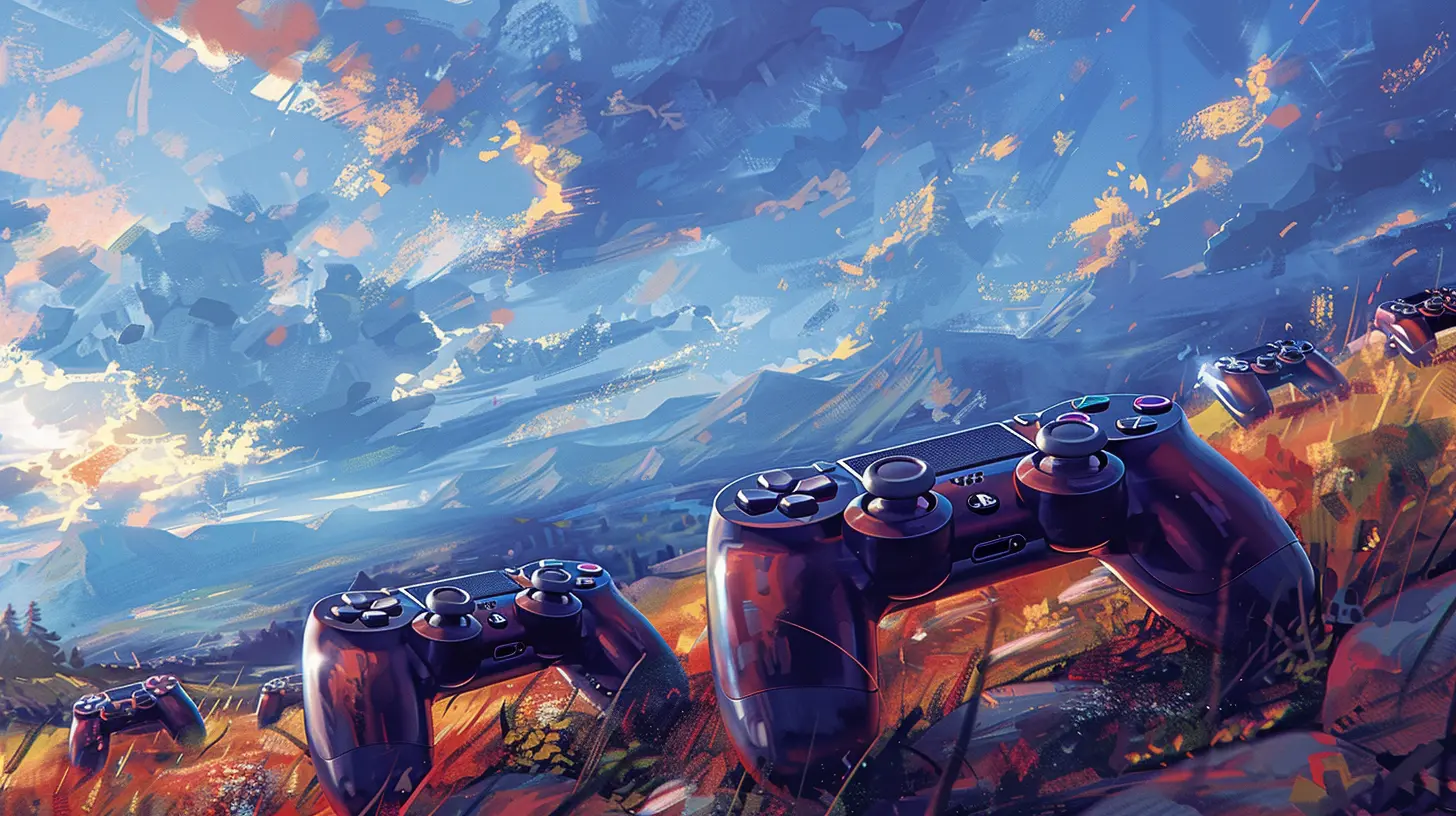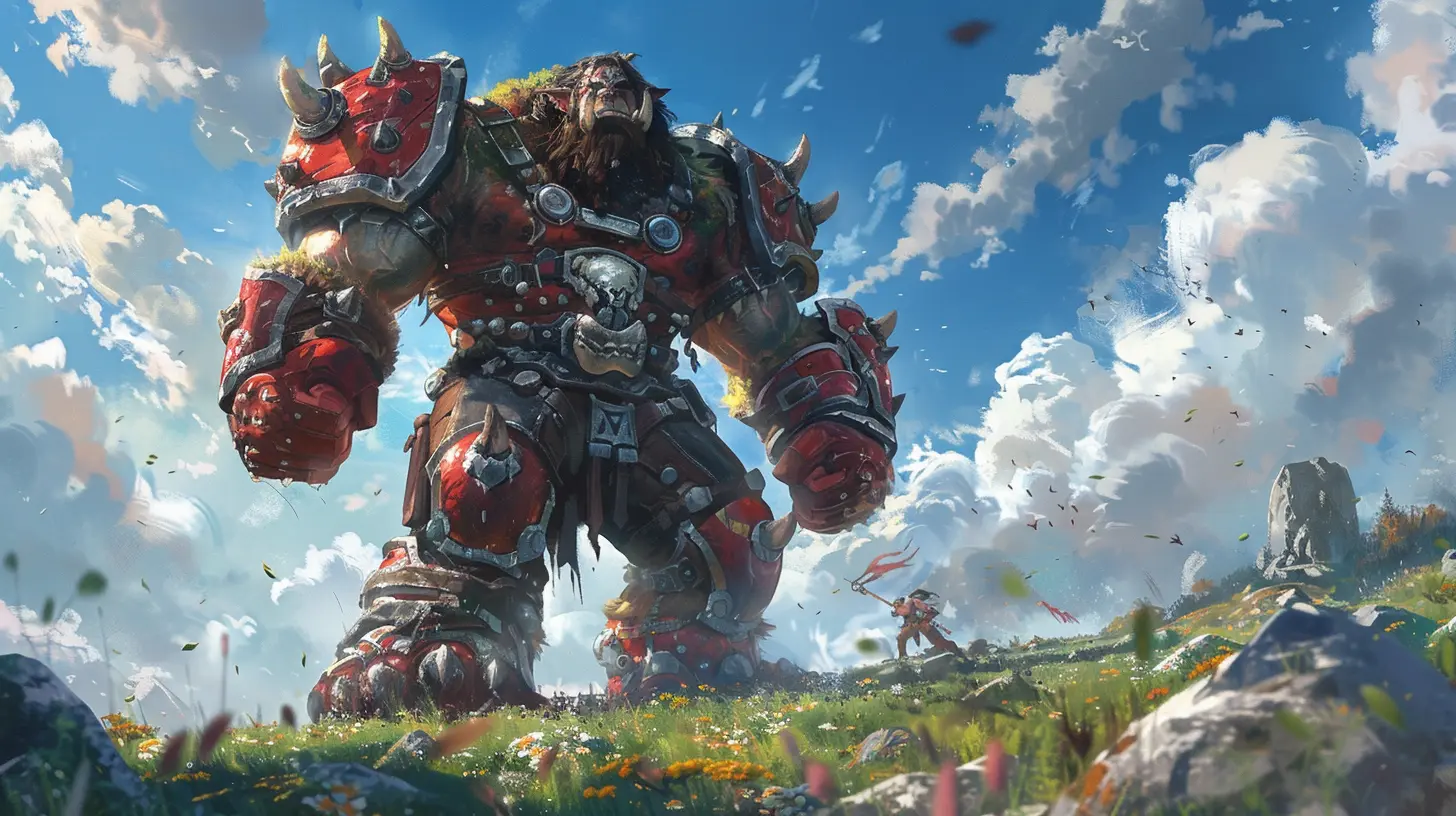The Impact of Cross-Platform Play on Competitive Gaming
10 June 2025
Alright, let’s be real for a sec – we’re living in an age where gaming isn't just about fun anymore. It's big business, it's serious sport, and it's an ever-expanding community of passionate players. Whether you're repping PC, console, or tapping away on a mobile device, gaming has truly gone global. But here’s the game-changing twist—cross-platform play.
That’s right. The once far-fetched dream of Xbox warriors battling PlayStation loyalists, or PC pros squaring off against Switch strategists, is now reality. And it's shaking up the competitive gaming scene in a big, bold way.
So, what exactly is the impact of cross-platform play on competitive gaming? Let’s dive into that, shall we?
What Is Cross-Platform Play, Anyway?
Before we get ahead of ourselves, let’s make sure we’re on the same page. Cross-platform play, or crossplay for short, is the ability for players on different gaming hardware to play with—or against—each other in the same game.Think Fortnite. You could be on a PS5, teaming up with someone on a PC, while your opponents might be on Xbox or Nintendo Switch. It’s a melting pot of machines, and it’s making gaming more accessible and diverse than ever.
But as with anything disruptive, it comes with both hype and headaches—especially when it comes to competitive gaming.
The Rise of Crossplay: A Timeline Worth Noting
Cross-platform play didn’t just appear out of thin air. It crept in, slowly but surely. Let's throw it back a bit.- Early Days: Titles like _Shadowrun_ (2007) tried to bridge the PC-Xbox divide. Cool idea, rough execution.
- Minecraft & Rocket League: These games made early strides in uniting platforms around casual play.
- Fortnite & Warzone Era: Crossplay went mainstream. It wasn’t just a feature—it was expected. In fact, Fortnite was the first major title to break Sony’s iron wall and fully embrace crossplay across all platforms.
- Today: It’s almost weird if a new competitive game doesn’t offer cross-platform support.
So the tech caught up. The devs listened. And the players got what they wanted...sort of.
Competitive Gaming: Where the Real Pressure Hits
Now, let’s connect the dots. Casual gaming and competitive gaming are like pickup basketball versus the NBA—same sport, wildly different vibes.In competitive gaming—whether it’s ranked matchmaking, tournaments, or esports—you need balance, fairness, and a level playing field. That’s where crossplay can really stir things up.
Why?
Because not all platforms are created equal.
The Skill Gap: Controllers vs. Mouse and Keyboard
Okay, let’s talk input devices—because this is where things start to feel a little unfair.- PC Players: Have the advantage of precision with mouse and keyboard. Quick flicks, tighter aim, customizable settings. It’s chef’s kiss for competitive FPS games.
- Console Players: Use controllers, which are great for comfort and accessibility but can lag behind in speed and accuracy. Even with aim assist (which, let’s admit, can sometimes feel like a superpower), it doesn’t fully close the gap.
So when you're throwing these players into the same competitive match, things can feel lopsided. Is that really fair?
It’s the gaming equivalent of running a race where some people are wearing sneakers and others are in flip-flops.
Matchmaking Mayhem: Balancing the Battlefield
Game devs are anything but clueless. Most modern competitive games implement smart matchmaking systems. Ideally, they group players by input method rather than platform.For example, in _Call of Duty: Warzone_, if you’re on console and playing with crossplay enabled, you’ll mostly match with console players unless you’re teamed up with someone on PC. Fair-ish, right?
But here's where it gets messy—these matchmaking systems aren't always perfect. Sometimes they lump players together, input be damned. And when that happens, tensions rise. Hardcore console gamers feel steamrolled by PC sharpshooters. Controllers vs KBM turns into a digital turf war.
Esports and Tournaments: Keeping Things in Check
So what about the big leagues?In professional esports, most tournaments still stick to a single platform. That’s because consistency is critical at the top level. Everyone should be on equal footing—same hardware, same input method, no excuses.
However, crossplay has started to influence the structure of some hybrid tournaments and community events. Organizers now have to ask themselves:
- Which platform sets the standard?
- Should we separate brackets by input or mix it up?
- What about ping disparities from different networks?
All of this leads to complicated logistics and some heated debates. But at the same time, it opens the doors for more inclusive events where players don’t need to own a specific platform to compete. Accessibility? 10/10. Competitive clarity? Still a work in progress.
Expanding the Player Pool: Pros and Cons
Let’s not forget one of the biggest upsides of crossplay: a massive boost to the player pool.No more waiting minutes to find a match. No more "dead servers" on a niche platform. Cross-platform matchmaking keeps competitive scenes alive and thriving—especially in games with smaller communities.
More players = better matchmaking, faster queues, and healthier gameplay for everyone.
But as the pool expands, so does the range of skill levels, hardware specs, and internet connections. And all that variety can sometimes lead to... well, chaos.
Ever lost a ranked match and blamed lag? Yeah, you’re not alone.
Communication Barriers in Crossplay
Let’s get into the social side of it.When you’re playing competitively, communication is key—team comms can make or break your match. With crossplay, though? It can sometimes feel like you’re yelling into the void.
Different platforms mean different voice chat systems. PC gamers might be using Discord while console users stick to in-game chat. Add in mic quality differences and you’ve got yourself a recipe for miscommunication.
Try coordinating a flank in _Apex Legends_ when half your squad can’t hear you. Not fun.
The Monetization Factor: Crossplay and In-Game Economies
Here’s something that folks don’t talk about enough—crossplay plays a huge role in how games make money. And yes, this affects competitive gaming too.With more players connected across platforms, devs can invest more in live services, skins, battle passes, and events. This leads to more consistent updates, better balancing, and longer lifespans for competitive games.
On the flip side, it can also mean more aggressive monetization. And when real money starts affecting perceived skill (like pay-to-win mechanics), competitive integrity takes a hit.
Is Crossplay the Future of Competitive Gaming?
Short answer? Absolutely.The momentum is way too strong to slow down now. Gamers want it. Devs are building for it. And the industry is adapting fast. But like anything in gaming, it’s not black and white. Crossplay has its flaws, especially when fairness and balance are on the line.
What matters is how game developers respond. Will they improve matchmaking? Offer better input-based filters? Standardize performance caps across platforms? We sure hope so.
Cross-platform play is still evolving—and we’re right in the middle of its beta test.
Final Thoughts: Embrace the Chaos (But Keep It Fair)
At the end of the day, crossplay is a powerful step toward a more connected gaming world. It breaks down barriers, strengthens communities, and keeps games alive longer.But when you throw crossplay into the competitive arena, you’ve got to be careful. It’s like adding rocket fuel to your car—it makes you faster, but if the engine can’t handle it, things blow up.
So, if you’re a developer, don’t just toss in crossplay and call it a day. Fine-tune the experience. Make sure players feel heard. And above all—level the playing field.
And if you're a gamer? Be open. Be vocal. And maybe… be ready to lose a few matches before mastering the new meta.
all images in this post were generated using AI tools
Category:
Gaming IndustryAuthor:

Emery Larsen
Discussion
rate this article
3 comments
Jade Pacheco
Cross-platform play fosters inclusivity and broadens competitive arenas, enhancing player engagement while breaking down barriers. It unites diverse gaming communities for richer experiences.
June 13, 2025 at 4:35 AM

Emery Larsen
Thank you for highlighting the importance of cross-platform play! It truly enhances inclusivity and enriches the competitive landscape by bringing together diverse gaming communities.
Marley Perry
Great article! Cross-platform play truly enhances competition by expanding player pools and fostering diversity. It’s exciting to see the gaming community unite!
June 10, 2025 at 3:06 PM

Emery Larsen
Thank you! I'm glad you enjoyed the article and share the excitement about how cross-platform play is bringing our gaming community closer together.
Simone Estes
Cross-platform play brings us all together! Let’s embrace the fun and friendly competition—game on, everyone!
June 10, 2025 at 4:49 AM

Emery Larsen
Absolutely! Cross-platform play fosters a vibrant gaming community, enhancing competition and camaraderie among players. Game on!



